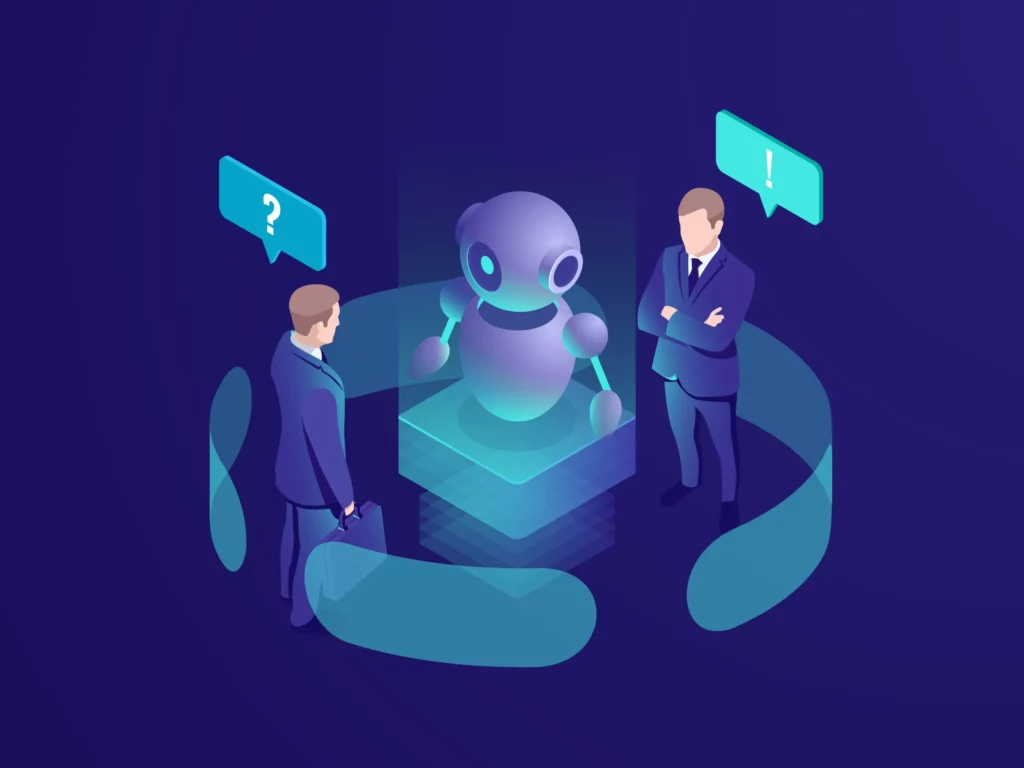In today’s rapidly evolving business landscape, recruiting the right people is essential for success. In order to stay ahead of the competition, many organizations are turning to AI tools to help them find the best candidates.AI tools can help recruiters identify the right people for their organization, automate the recruitment process, and even improve candidate engagement. In this article, we’ll explore how recruiters can use AI tools to find the best candidates.
The Benefits of Using AI Tools in Recruiting
AI tools offer a number of benefits for recruiters.Identify the Right Candidates: AI tools analyze key data points such as skills, experience, and education to identify candidates who are a good fit for the organization. This helps recruiters save time and effort when searching for the right person for the job.Automation: By automating certain tasks, recruiters can focus on more important tasks such as engaging with potential candidates and analyzing their data. This helps recruiters streamline their recruitment process and make it more efficient.Find Potential Candidates: AI can assist recruiters find unapplied applicants. AI systems can find job candidates by analysing social media and other data. This helps recruiters locate the top prospects for their company and avoid missing out on talent.
Understanding How AI Tools Work in Recruiting
In order to use AI tools effectively, recruiters need to understand how they work.Analyzing Resumes: AI tools use algorithms to analyze data and identify patterns in order to make predictions about potential candidates. For example, an AI tool may analyze a candidate’s resume and compare it to other resumes to determine if they have the right skills and experience for the job.Analyze Social Platforms: AI tools can also be used to analyze social media profiles, emails, and other online data sources. By gathering and analyzing this data, AI tools can help recruiters make better decisions about who to hire.Resume and Interview Automation: AI tools can also be used to automate certain aspects of the recruitment process, such as screening resumes and scheduling interviews. This can help recruiters save time and resources, allowing them to focus on more important tasks.
Identifying the Right AI Tool for Your Recruiting Needs
When it comes to choosing an AI tool for recruiting, there are a few factors to consider.Requirement: First, you’ll want to look for a tool that is user-friendly and easy to use. You’ll also want to make sure the tool meets your specific needs – for example, if you’re looking for a tool that can analyze social media profiles, then you’ll want to choose one that is designed specifically for that purpose.Cost: It’s also important to consider the cost of the tool. Some AI tools may be more expensive than others, so you’ll want to make sure you choose one that fits within your budget.Customer Support: you’ll want to make sure the tool comes with good customer support and that it is regularly updated to ensure it is up-to-date.Security: you should also consider the security of the AI tool. Make sure the tool is secure and that your data is protected. Additionally, you should look for a tool that is compliant with any relevant regulations or laws.
Top 5 AI Tools Use for Recruitment
- Lever: An AI-powered recruitment platform that streamlines the hiring process and helps identify the best candidate matches.
- HiredScore: An AI-based tool that uses natural language processing and machine learning algorithms to evaluate job applicants and provide hiring recommendations.
- Talentsoft: An AI-powered talent management software that automates and streamlines recruitment processes, from sourcing to hiring.
- WorkFusion: An AI-powered automation platform that streamlines recruiting tasks and enables recruiters to focus on more strategic initiatives.
- Mya Systems: An AI-powered recruitment chatbot that engages with job candidates, screens resumes, and schedules interviews, freeing up time for recruiters to focus on other tasks.
Creating an Effective Recruitment Strategy with AI Tools
Once you’ve chosen an AI tool, it’s time to create an effective recruitment strategy.Task Appointment: This will involve determining which data sources you will use (e.g., resumes, social media profiles), as well as which tasks you will automate (e.g., job postings, background checks).Segregate the data: You’ll want to consider how you will use the data generated by your AI tool (e.g., analyzing key data points such as skills and experience).Measure the success: It’s also important to consider how you will measure the success of your recruitment strategy. This could include tracking the number of applicants, the time it takes to fill a position, and the quality of the hires.Additionally, you should consider how you will use the data generated by your AI tool to improve your recruitment process over time.
Leveraging AI Tools to Help Source Candidates
Problem: AI tools can also be used to source potential candidates. For example, an AI tool can scan job boards and other sources of online data in order to identify potential candidates who have the right skills and experience for the job.Solution: This helps recruiters save time and money by eliminating the need to manually search for potential candidates.Problem: AI tools can also be used to assess the suitability of potential candidates. By analyzing the data collected from job boards and other sources, AI tools can provide recruiters with an objective assessment of a candidate’s skills and experience.Solution: This helps recruiters make more informed decisions about which candidates to pursue.
Improving Candidate Engagement with AI Tools
Once you’ve identified potential candidates, you’ll want to ensure they remain engaged.Scheduling Interviews: AI tools can help with this by automating certain tasks such as scheduling interviews and sending out reminders. This helps ensure that potential candidates remain engaged throughout the recruitment process.Human Touch: AI tools can also be used to provide personalized messages to candidates. This can help create a more positive experience for the candidate, as they will feel like they are being treated as an individual rather than just another applicant.Feedback: AI tools can be used to provide feedback to candidates after interviews, helping to keep them informed and engaged.
Analyzing Key Data Points to Make Better Recruiting Decisions
Once you’ve identified potential candidates, it’s important to analyze their data in order to make better decisions.
AI tools can help with this by analyzing key data points such as skills and experience. By analyzing this data, recruiters can determine which candidates are more likely to be successful in the job.In addition to skills and experience, AI tools can also analyze other data points such as job history, education, and references. This can provide recruiters with a more comprehensive view of a candidate’s qualifications.AI tools can also help recruiters identify potential red flags that may indicate a candidate is not the right fit for the job.
Automating Your Recruiting Process with AI Tools
AI tools can also be used to automate parts of the recruitment process.Job Posting: AI tool can be used to automate job postings and background checks. This helps streamline the recruitment process and reduce the amount of manual work required.Analyze Resume: AI tools can also be used to analyze resumes and identify the best candidates for a job. This can help recruiters quickly identify the most qualified candidates and save time in the recruitment process.Interview Scheduling: AI tools can be used to automate the scheduling of interviews and other recruitment tasks, further streamlining the process.
Ensuring Compliance when Using AI-Powered Recruiting
Finally, it’s important to ensure compliance when using AI-powered recruiting tools.This includes ensuring that all data collected is secure and privacy compliant. Additionally, it’s important to ensure that any automated tasks are compliant with labor laws and other regulations.Using AI tools for recruiting can help organizations find the best candidates quickly and efficiently. By understanding how these tools work, identifying the right tool for their needs, and creating an effective recruitment strategy with AI tools, recruiters can ensure they find the best possible candidates.
















